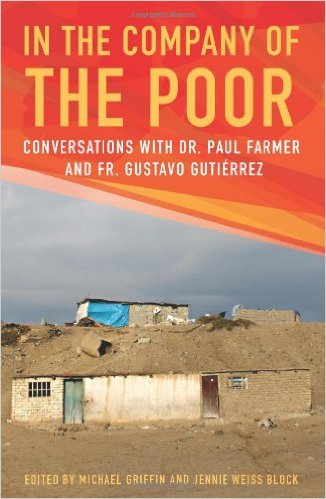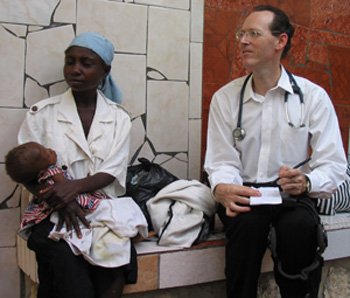By: Teresa Yao
GlobeMed, various campus groups, and the Harris World Law Institute brought Dr. Paul Farmer, a leading physician and anthropologist, to Washington University on November 6, 2015. He issued an urgent call to increase access to healthcare in the most impoverished communities globally. Dr. Farmer co-founded Partners in Health, a non-profit organization providing specialized health clinics in developing countries, with services addressing Ebola, mental health, HIV/AIDS, juvenile and maternity health.

Dr. Farmer covered issues discussed in his new book, In the Company of The Poor, co-authored with Father Gustavo Gutierrez who coined the term “liberation theology.” Their model creates a “‘preferential option for the poor’… which means to make an option for poor people and to work on their behalf.” The goal is not to raise the quality of healthcare to meet that of the wealthy, but rather making it even better. Dr. Farmer emphasized that health is a human right, and epidemics like Ebola are not transient medical occurrences. They are representations of social injustice, where the poor suffer the most, due to lack of basic sanitation measures.
In his talk, Dr. Farmer referenced his time in Haiti where he first experienced the jarring disparity in health services offered to the poor. He parsed out two different methods of providing sanitary healthcare: disease-control only and integration-prevention. In a disease-control only approach, the work is solely focused on short-term outcomes like quarantine and emergency procedures to contain an epidemic. As for an integration-prevention approach, the goal is to seek long-term solutions providing countries with self-sustaining healthcare in non-emergency times.
 To achieve lasting healthcare change in developing countries, Dr. Farmer proposes the four S’s: staff, stuff, space, and systems. “Staff” represents the number of healthcare professionals available to assist with medical procedures. “Stuff” includes the necessary equipment for maintaining acceptable sanitary standards. “Space” refers to room capacity in hospitals and clinics for patients to stay, so the sick do not have to be isolated in their own homes. Lastly, “systems” denotes macro-level regulations to adequately implement and sustain necessary staff, stuff, and space. Once these four S’s are accomplished, the healthcare standard in impoverished countries will naturally elevate to provide for higher-quality care for their citizens.
To achieve lasting healthcare change in developing countries, Dr. Farmer proposes the four S’s: staff, stuff, space, and systems. “Staff” represents the number of healthcare professionals available to assist with medical procedures. “Stuff” includes the necessary equipment for maintaining acceptable sanitary standards. “Space” refers to room capacity in hospitals and clinics for patients to stay, so the sick do not have to be isolated in their own homes. Lastly, “systems” denotes macro-level regulations to adequately implement and sustain necessary staff, stuff, and space. Once these four S’s are accomplished, the healthcare standard in impoverished countries will naturally elevate to provide for higher-quality care for their citizens.
From a legal standpoint, the obvious point of impact for legislators would be through the development of more effective “systems.” Countries need to have healthcare regulations in place to promote and monitor the sufficiency of professionals, medical equipment, and hospital space. Dr. Farmer suggested that to truly improve systems, funding must be dedicated to training healthcare students and specialists, increasing knowledge of diseases, and research to learn about new causes and treatments. With more training, the human resources for providing care increases both quantitatively and qualitatively. With more awareness, epidemics can be caught earlier. With more research, developing countries like Haiti can have access to new solutions to meet the changing landscape of medical mysteries. As Dr. Farmer succinctly proclaims, health is a human right. There is a manifest social injustice in countless countries around the world, and there is a solution.
